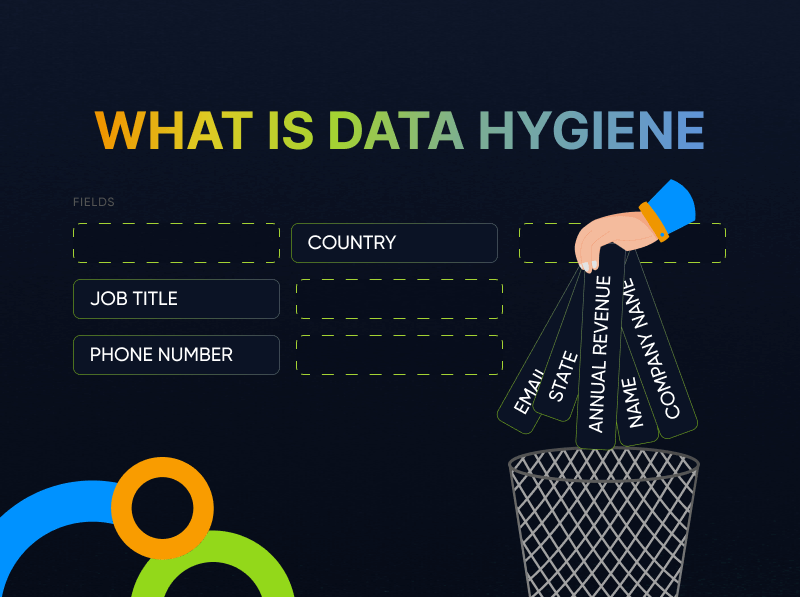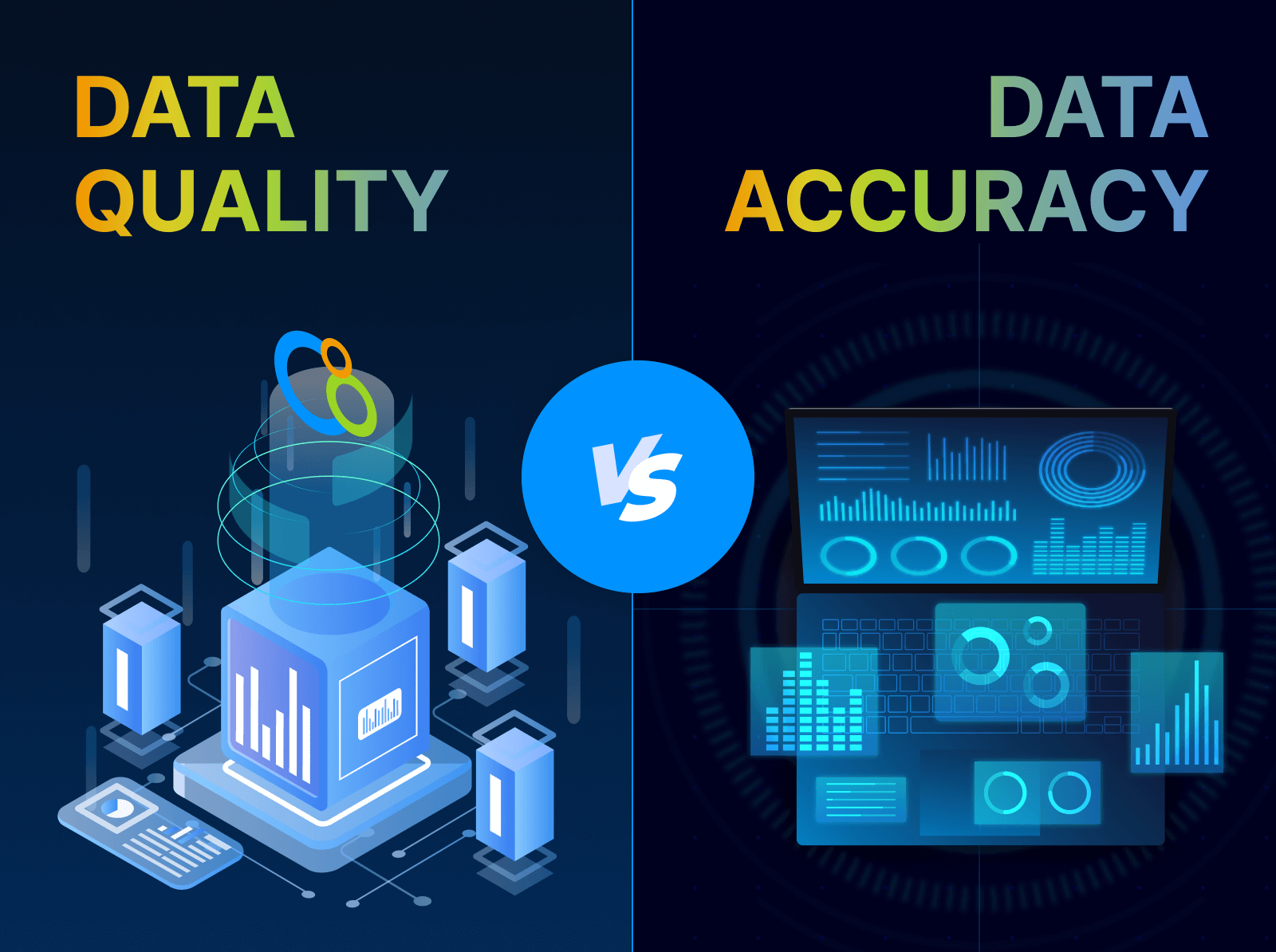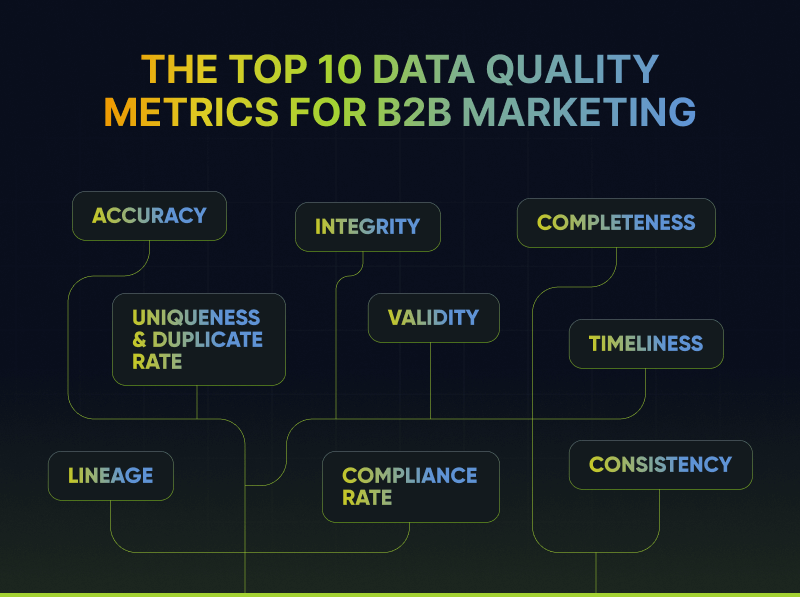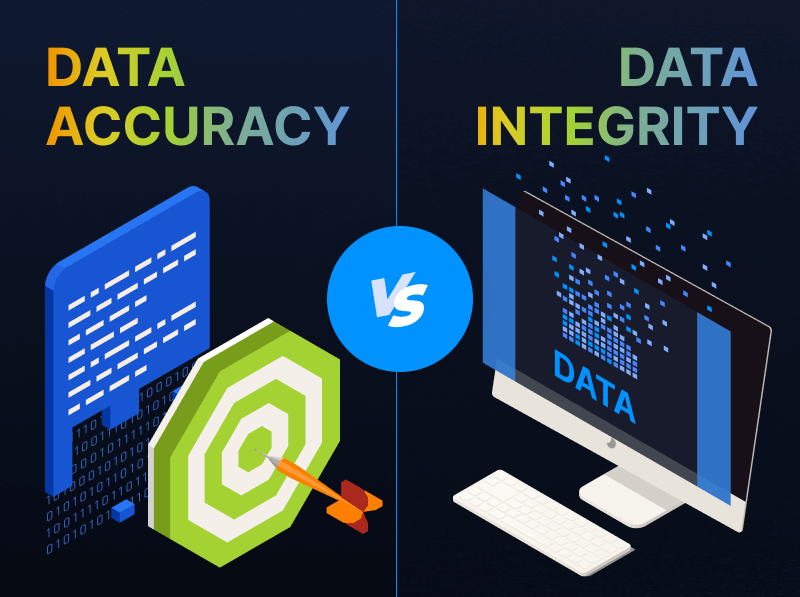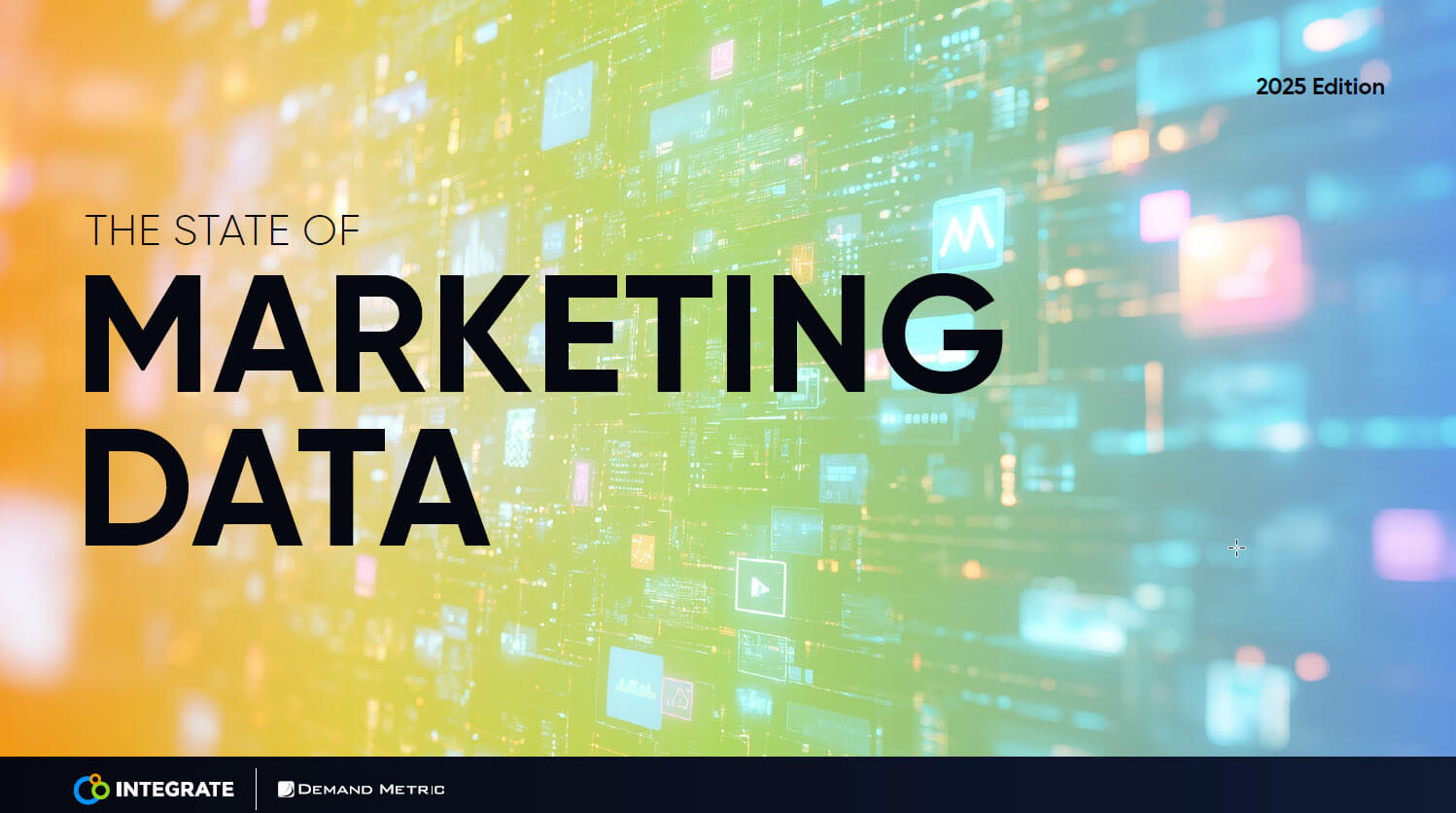What Is Data Hygiene? Why It’s Critical for B2B Marketing Ops and Demand Gen Success
B2B marketing has evolved into a precision-driven data operation. Whether it’s a strategic ABM play or a webinar sign-up, every interaction feeds into a growing database that marketing operations (MarkOps) teams are tasked with maintaining, governing, and activating. In today’s landscape, where personalization and precision are more valuable than scale for scale’s sake, all that effort goes to waste if the data isn’t clean.
If your data is decaying, duplicated, or misaligned with your ideal customer profile (ICP), your go-to-market machine is running on fumes.
According to the 2025 Database Strategy Playbook from Demand Gen Report and Integrate, 66% of B2B marketers rank improving data quality among their top three GTM priorities. Why? Because personalization, precision targeting, and ABM effectiveness all start with clean, structured data.
Let’s unpack what data hygiene means, why it matters, and how MarkOps leaders can drive better demand generation by mastering it.
What Is Data Hygiene in B2B Marketing?
Data hygiene is the process of continuously cleaning, validating, standardizing, and de-duplicating marketing data to ensure it remains trustworthy, usable, and compliant. It ensures your leads and accounts are complete, up to date, and aligned with your systems of record.
Inaccurate, stale, or inconsistent data disrupts everything from lead scoring and segmentation to routing and reporting. And as modern B2B marketing leans further into precision—think ABM, personalization, and intent-driven targeting—the consequences of poor data hygiene become harder to ignore.
At its core, data hygiene gives marketers, sales, and everyone on revenue teams, the confidence that every outreach and campaign is powered by trustworthy information. It ensures you’re connecting with the right buyers and customers, through the right channels, with the right message. It helps teams:
- Route leads to the right rep without delays or duplication
- Segment campaigns accurately across buying groups
- Personalize messaging based on verified firmographic or behavioral insights
- Maintain compliance with privacy regulations like GDPR and CCPA
In the words of Krista Hoffman, SVP of Customer Experience at Integrate:
“With a proactive solution, marketers can prevent issues such as incomplete fields, duplicates, outdated information and incorrect formatting, which ultimately mitigates data decay, enhances operational efficiency, improves marketing performance and ensures compliance with evolving privacy regulations like GDPR and CCPA.”
This is more than a back-office exercise. Clean data directly supports lead routing, campaign segmentation, buying group insights, and sales alignment—all essential to modern GTM programs.
Why Data Hygiene Should Be a Strategic Priority
Our research shows why data hygiene should be a top priority for B2B marketers—tracked through metrics like duplicate rate, decay rate, and field completeness.
- 66% of B2B marketers prioritize data quality to improve GTM outcomes
- 47% of new records contain at least one critical error
- 25% of revenue is wasted due to bad data, per industry estimates
This isn’t just a performance issue. As we noted in our recent blog on data accuracy and integrity, “accuracy is about whether a data point is correct in the moment, while integrity is about whether you can trust that data over time.” Poor-quality data can derail campaigns, erode trust with sales, and leave your organization exposed to compliance missteps.
The Hidden Costs of Poor Data Hygiene
Camile Turner of Valvoline put it plainly:
“Data decays over time. People change jobs, and companies are bought and sold. The result is outdated contact information that creates inaccurate targeting and erodes marketing returns, deliverability and reporting.”
Those invisible issues manifest as:
- Low MQL-to-SQL conversion rates
- Missed pipeline goals
- Distrust between marketing and sales
- Compliance violations from unverified opt-ins
Left unchecked, poor data hygiene becomes a silent pipeline killer. It chips away at campaign performance and wastes media spend by fueling lead systems with flawed inputs. Even small inconsistencies—like a mistyped job title or outdated email—can have a cascading effect that disrupts buyer engagement, attribution, and sales outcomes. Over time, these issues erode confidence across revenue teams and make it harder for marketers to prove their impact.
Reporting for Data Hygiene Stewards
MarkOps professionals are tasked with maintaining data quality, and reporting is both a daily discipline and a strategic imperative. The most effective teams build dashboards that don’t just flag errors—they guide action. Here are some of the most common and valuable reports for monitoring B2B marketing data hygiene:
- Duplicate Record Report: Surfaces contact and account records with identical or suspiciously similar values across key fields (like email or domain).
- Field Completeness Report: Measures the percentage of leads with missing or incomplete critical fields (job title, company name, region, opt-in status).
- Data Decay Monitoring: Tracks changes over time in key data points like job titles or company names to highlight stale or outdated records.
- Lead Rejection and Failure Report: Identifies leads rejected at intake or downstream systems due to formatting issues, privacy concerns, or invalid entries.
- Compliance Audit Logs: Verifies that consent data is collected and stored properly in accordance with GDPR, CCPA, or regional requirements.
- Partner Source Quality Report: Scores media partners or lead vendors based on trust, reliability, and historical performance using AI-driven insights.
These reports give MarkOps leaders a shared language with sales, demand gen, and IT—anchoring conversations in metrics that matter for revenue.
Data Hygiene Best Practices for B2B MarkOps
The report offers practical ways to stay ahead of decay:
- Govern data before ingestion
Most tools clean after the fact. Instead, implement hygiene controls at the point of data entry. - Assign data owners
Appoint MarkOps leaders to be accountable for database quality and compliance. - Automate validation
Use a platform like Integrate to validate emails, verify fields, and standardize formats in real-time. - Monitor key hygiene metrics
Track duplicate rate, decay rate, compliance rate, and database coverage for job titles, industries, and personas. - Segment based on engagement quality
Go beyond vanity metrics like clicks. Instead, align on meaningful intent signals across your ABM buying groups. - Use Gen AI to assess media partner trust
With the advancements of AI to draw conclusions from big data sets, Leverage AI-generated trust and reliability scores to flag suspect leads provided by partners and improve campaign decisions.
Why Data Hygiene Is the Backbone of GTM Success
Data hygiene is foundational to any successful B2B marketing strategy. Without clean, validated data, even the most creative campaigns and well-funded programs fall flat. That’s because dirty data leads to inaccurate segmentation, mistargeted outreach, compliance issues, and sales frustration—all of which stall pipeline and drain revenue potential.
MarkOps teams that implement strong data hygiene practices empower their organizations to:
- Execute precise ABM and demand programs
- Reduce friction in sales handoff and follow-up
- Build accurate campaign reporting and attribution
- Stay compliant with evolving data privacy laws
“Data validation and verification isn’t just a system. It’s the backbone of successful demand marketing strategies, helping B2B marketers streamline their demand generation and marketing operations with precision and efficiency.”
Clean data drives efficiency and confidence. Without accuracy and consistency over time, campaigns lose precision, and pipeline slows to a crawl.
How Integrate Helps You Maintain a Marketable Database
Integrate’s Lead Management Platform offers a proactive approach to data hygiene—before leads even hit your CRM or MAP:
- Cleanses lead data at the source
- Applies compliance checks for GDPR and CCPA
- Delivers clean, routed, deduplicated leads to sales in real-time
The result? Customers report a 240% increase in opportunities and 3,000+ hours saved in manual lead processing.
Conclusion: Data Hygiene Is Your Competitive Advantage
Data quality challenges don’t start and end with new lead sources. Even data you trusted yesterday may already be decaying today. In today’s AI-powered, multi-channel GTM environment, clean data is not optional—it’s foundational.
MarkOps teams have a unique opportunity to lead here. By operationalizing data hygiene across all lead sources, you become the engine room powering high-performing demand gen campaigns.
Download the Full Report
Get the complete insights and expert interviews from Demand Gen Report and Integrate.
→ Download the 2025 Database Strategy Playbook
